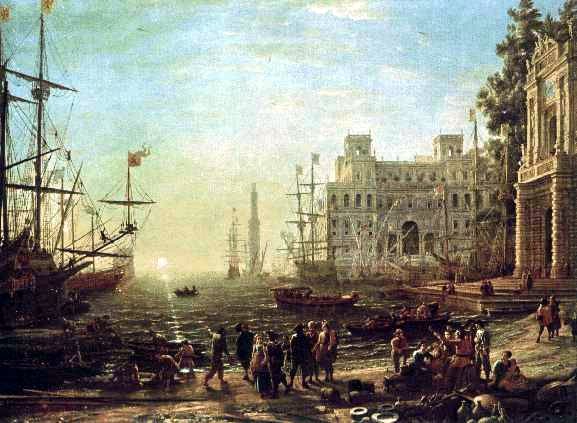MERCANTILISM
The European empires of the 16th through the 18th centuries were empires that existed primarily to increase trade and the wealth of the European nations. During this time, powerful European nations such as Spain, Portugal, England and France participated in intense economic and exploration based rivalries. The Age of Exploration shows this rivalry in the massive colonies that each European nation amassed, as they competed with each other for territories in the New World. At their height, these countries controlled large sections of the world as part of their vast empires.
At the foundation of these rivalries existed the economic system of mercantilism, which was the idea that colonies and trade should be strictly controlled to benefit the economy of the home (European) nation. These European nations believed that in order to ensure prosperity, the balance of trade must favor the home country. As such, it was believed that its exports must be higher than its imports. This caused captured territories, or colonies, to be viewed as a cheap source of raw materials. In particular, it was believed that a nation had to gain large amounts of gold and silver, and that a nation was only truly wealthy if it had more stored gold and silver than its rivals.
At the foundation of these rivalries existed the economic system of mercantilism, which was the idea that colonies and trade should be strictly controlled to benefit the economy of the home (European) nation. These European nations believed that in order to ensure prosperity, the balance of trade must favor the home country. As such, it was believed that its exports must be higher than its imports. This caused captured territories, or colonies, to be viewed as a cheap source of raw materials. In particular, it was believed that a nation had to gain large amounts of gold and silver, and that a nation was only truly wealthy if it had more stored gold and silver than its rivals.
|
Under the mercantile system colonies existed to provide markets and natural resources for the industries of the home country. Laws often required a colony’s raw materials to be shipped to the home country. Colonial merchants and entrepreneurs were not allowed to set up factories and use the colony’s raw materials to manufacture goods, as all manufacturing would be carried out in the European nations themselves. The products made in the European nations would then be shipped back to the colony and sold in order to benefit the merchants and industrial cities in Europe. As well, to keep their own colonial markets strong, governments often prohibited colonies from importing goods from other European countries. This limited competition and meant that people in colonies could buy only goods made in the home country. In general, mercantilism is viewed as an economic system that favored heavy government control and regulation.
|
The economic principles of mercantilism were often associated with absolute monarchies and feudalism. An absolute monarchy is a form of government that was popular during medieval Europe and up until the end of the 18th century. It involved society being ruled over by an all-powerful king or queen. The monarch had complete control over all aspects of the society, including: political power, economics, and all forms of authority. The monarch was able to maintain absolute control over the society with the addition of feudalism, which involved people being placed into different estates of power, such as: clergy, nobility and peasants.
|
As the 18th century went along, some people began to reject the principles of mercantilism. For example, in 1776 Scottish economist Adam Smith published his famous written work “An Inquiry into the Nature and Causes of the Wealth of Nations” which is just often shortened to “Wealth of Nations”. The book challenged the idea that the government should control the economy and instead proposed the idea of free trade and competition with a lesser role of the government. The ideas of this book would eventually lay the foundation for the principles of capitalism, which is an economic system that supports the idea of free trade and choice as a way of achieving prosperity.
|


